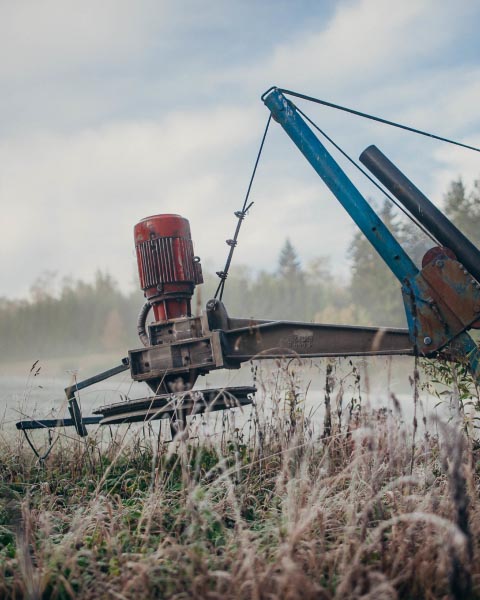Boosting Agricultural Efficiency with Reliable Dredging Solutions
Maintain Irrigation Systems, Manage Sediment, and Enhance Water Flow
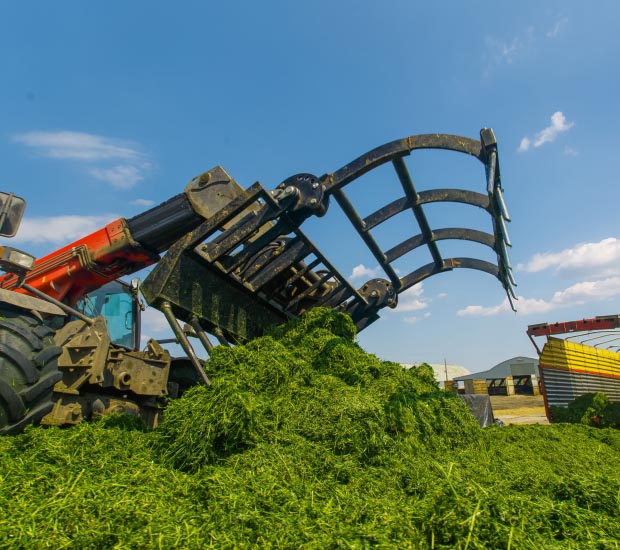
Washington’s agriculture sector depends heavily on efficient water management to maintain irrigation systems, reservoirs, and drainage channels. Sediment buildup, erosion, and clogged water pathways can significantly impact crop yield and farm productivity.
Our dredging solutions are specifically designed to support agricultural operations by maintaining water flow, clearing sediment buildup, and restoring irrigation infrastructure. From farmland drainage to pond maintenance, we offer reliable and sustainable solutions that help Washington’s agricultural communities thrive.
Key Challenges in
Agricultural Dredging
Agricultural activities in Washington are diverse, ranging from crop production to livestock farming. These operations often face challenges related to water management and sediment control. Our dredging solutions address the following key challenges:
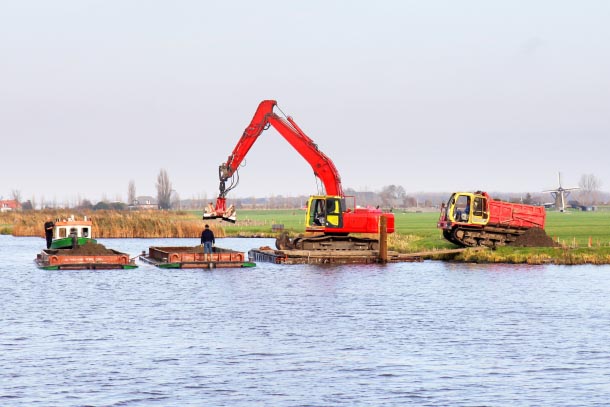
Irrigation Canal Maintenance
- Sediment buildup can reduce the flow capacity of irrigation canals, leading to inefficient water distribution.
- Dredging clears blockages, restoring full water flow to fields and agricultural plots
- Essential for maintaining efficient irrigation, especially during the growing season.
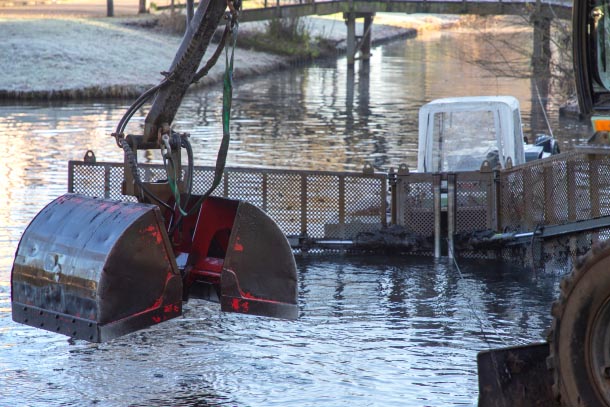
Farm Pond and Reservoir Cleaning
- Agricultural ponds used for irrigation and livestock often accumulate silt, reducing water capacity.
- Dredging helps maintain optimal water storage and quality, supporting uninterrupted water availability.
- Clearing organic matter and sediment prevents algae growth and improves water clarity.
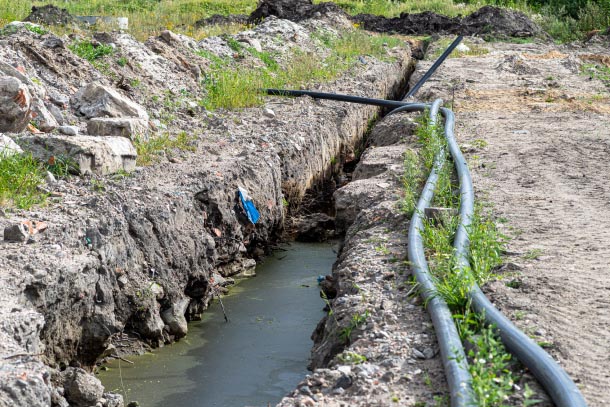
Drainage Ditch Management
- Farmland drainage ditches can become clogged with sediment, plant debris, and organic waste.
- Dredging keeps these channels clear, preventing waterlogging and soil degradation.
- Maintains optimal drainage to reduce field saturation and protect crop roots
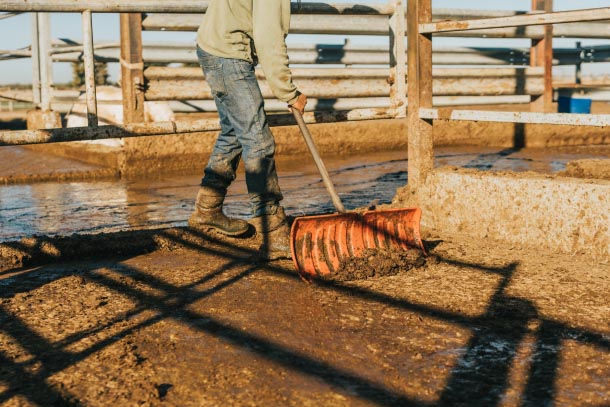
Livestock Waste Lagoon Maintenance
- Livestock farms often use waste lagoons for manure management, which can become heavily silted.
- Dredging these lagoons maintains capacity and prevents overflow, ensuring compliance with environmental regulations.
- Helps reduce the risk of contamination in adjacent water bodies.
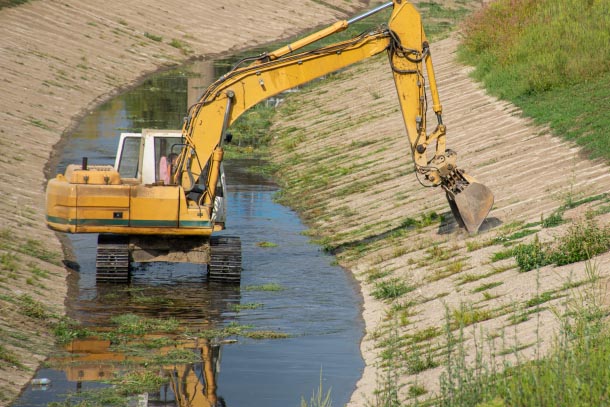
Erosion Control and Waterway Restoration:
- Agricultural runoff can cause sediment accumulation in nearby streams and rivers.
- Dredging mitigates sediment overflow and protects downstream water quality.
- Supports land restoration projects aimed at preserving riparian habitats.
Our Dredging Solutions for
the Agriculture Sector
Dredging Equipment
- Portable dredgers and slurry pumps designed for small and medium-sized water bodies.
- Cutter suction dredgers for large-scale irrigation canal and reservoir maintenance.
- Hydraulic dredgers for clearing sediment from narrow drainage channels.
- Efficient sediment removal without disrupting agricultural operations
Customized Project Planning
- Tailored solutions for farm-specific challenges, from irrigation pond cleaning to erosion control.
- Site assessments to determine sediment volume and optimal dredging methods
- Flexible equipment configurations to accommodate different water depths and sediment types.
Maintenance and Support
- Regular dredging maintenance schedules to ensure ongoing water flow.
- On-site training for farm operators to manage dredging equipment efficiently.
- Emergency support for urgent sediment removal, minimizing downtime.
Dredging Applications in Agriculture
Our dredging solutions support a wide range of construction and infrastructure projects, ensuring reliable performance and compliance with Washington’s regulations.
Irrigation System Maintenance:
- Keeping irrigation channels clear of silt and debris ensures consistent water delivery to crops.
- Reduces the risk of clogged pumps and inefficient water distribution.
- Supports large-scale irrigation networks and smaller farm channels alike.
Pond and Reservoir Dredging
- Removing sediment and organic matter to maintain water storage capacity.
- Improves water quality by reducing stagnant zones and controlling algae growth.
- Suitable for irrigation ponds, livestock watering stations, and rainwater harvesting systems.
Drainage Ditch and Canal Clearing:
- Ensures that drainage systems efficiently channel excess water away from fields.
- Prevents waterlogging and soil degradation, crucial for maintaining crop health.
- Reduces maintenance costs by prolonging the efficiency of existing drainage infrastructure.
Livestock Waste Lagoon Cleaning:
- Periodic dredging of manure lagoons to maintain storage capacity and reduce odors.
- Ensures compliance with agricultural waste management regulations.
- Helps maintain a hygienic environment on livestock farms.
Flood Control and Runoff Management:
- Dredging flood-prone areas to maintain channel capacity and reduce overflow risk.
- Supports drainage management in flood-sensitive agricultural regions.
- Enhances soil stability by controlling runoff sedimentation.
Why Choose Us for Agricultural Dredging in Washington ?
Industry Expertise
Extensive experience working with farms and agricultural cooperatives.
Advanced Technology
Efficient and durable dredging equipment designed for agricultural needs.
Custom Solutions
Tailored dredging plans that fit farm-specific water management challenges.
Reliable Maintenance
Routine and emergency dredging services to keep irrigation systems operational.
Environmental Responsibility
Eco-friendly dredging techniques to preserve local ecosystems.
